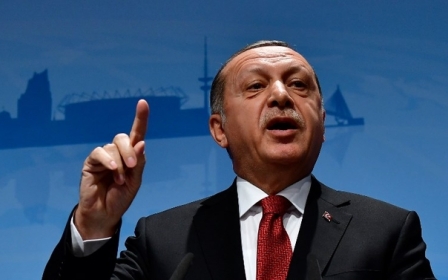Netanyahu mocks Turkish claims Mossad helped Kurdish independence bid

Israeli Prime Minister Benjamin Netanyahu on Saturday rejected claims from Turkey that Mossad intervened in the 25 September Kurdish referendum vote.
"Israel played no part in the Kurdish referendum, aside from the natural, deep and long-standing sympathy the Jewish people have for the Kurdish people and their aspirations," Netanyahu said at the opening of the weekly Cabinet meeting, according to Haaretz.
On Saturday evening, Turkish President Recep Tayyip Erdogan said Israel's Mossad intelligence agency played a role in the independence vote, proved by the waving of Israeli flags during celebrations of the overwhelming "yes" vote.
Apparently directing comments at Erdogan, Netanyahu said that he understands why "those who support [Palestinian organisation] Hamas tend to see the Mossad" where it suits them.
Erdogan had earlier claimed that Turkey had been saddened to see some Iraqi Kurds acclaiming the independence referendum with Israeli flags.
"This shows one thing, that this administration [in northern Iraq] has a history with Mossad, they are hand-in-hand together," Erdogan said.
Israel has been the only country to openly support an independent Kurdish state, with Netanyahu backing "the legitimate efforts of the Kurdish people to attain a state of its own".
Erdogan has derided the Israeli support.
"Are you aware of what you are doing?" Erdogan said in an appeal to Iraqi Kurdish leaders. "Only Israel supports you."
Stay informed with MEE's newsletters
Sign up to get the latest alerts, insights and analysis, starting with Turkey Unpacked
Middle East Eye delivers independent and unrivalled coverage and analysis of the Middle East, North Africa and beyond. To learn more about republishing this content and the associated fees, please fill out this form. More about MEE can be found here.




